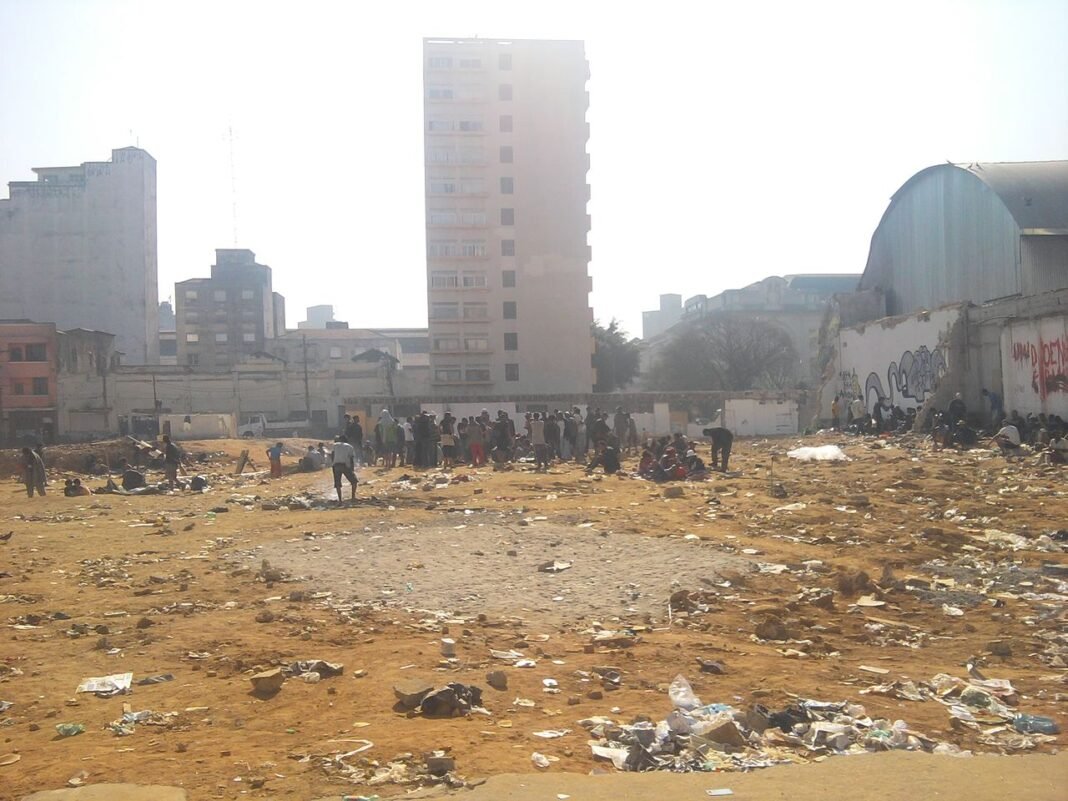Recently, merchants have reported to media sources that criminals responsible for selling drugs in the “cracolândia”, in the central area of São Paulo, are charging monthly payments to remove the flow of drug addicts from the doors of establishments and residences in downtown. Some sources claim that the security forces, especially members of the Municipal Guard (GCM), would be directly involved with extortion cases.
A New Behavior
A little over a year ago, hundreds of drug addicts that form the “cracolândia” left the surroundings of Júlio Prestes station, which was its address for several decades. After that, the flow went to Princesa Isabel Square, but then changed to an itinerant behavior.
Residents and Merchants
Since then, residents and merchants from the central area began to complain about security problems they started to have more and more with the new configuration of the commerce and consumption of drugs. In some spots, there are hundreds of drug addicts gathered in a precarious sanitary situation, often closing a street. Many commit crimes to pay for drugs.
More Crimes Against Property
In 2022, an increase in cases of robberies and thefts in the region was reported. Data from the Public Security Secretary (SSP) indicate that the 77th Police Department (DP-Santa Cecília), which is responsible for a large part of the region known as “cracolândia”, accumulated, from January to October, its highest numbers of robberies (1,693) and thefts (3,791) since 2002, when cases began to be recorded. In addition, there was a 16% increase in the number of robberies and 27% in the number of thefts, when compared to the balance of the first ten months of 2019, when there were no consequences of the closures caused by the pandemic. The 1st DP (Sé) had a 36% increase in robberies. In the 3rd DP (Campos Elíseos), robberies went up by 41%.
Extortion
With the rise in violence and insecurity in the central region, people supposedly infiltrated among crack addicts began to receive payments from residents and merchants to ensure the safety of workers and visitors to the area. However, in the last months, the model has changed to something even bigger. Extortion became centralized by the group that claims to control drug trafficking in the area and, therefore, would have influence on the displacement of addicts.
Security Forces Involved in Extortion
However, audios with messages from civil guards obtained by Jornal da Band would indicate that the security forces were also involved with the extortion cases. On Tuesday (06/06), the São Paulo City Hall said it had removed from the streets seven municipal guards for misconduct in the Cracolândia region. The GCM would have charged protection fees to merchants in the Cracolândia region. Other witnesses claimed that members of the civil and military police would be involved with the sale of private security in the region as well.
Homeless Population
The drug problem is a social and health issue, which is often among the major factors that makes people end up living on the streets. That being said, according to data from the Single Registry for Social Programs (CadÚnico) for the first quarter of this year, there was a 1.8% increase in the number of homeless people in the city of São Paulo. In total, there are 53,188 on the streets of the capital.
In addition to the capital, the homeless population in the cities of São Bernardo do Campo, Guarulhos, Osasco and Suzano also increased. Of the 39 cities surveyed, only two showed a drop in the number of people on the streets: Franco da Rocha and Cotia. The state of São Paulo concentrates 88,415 thousand people living in this condition.
Our Analysis:
The most famous militia in Brazil, which was created in Rio de Janeiro (RJ), began with a group of active and inactive members of security forces that decided to charge for security of commercial facilities against property crimes. The event reported in the central region of São Paulo is quite similar in some points to the case of the neighboring state. If allowed to prosper, the group of criminals extorting the store owners could grow by exploiting a public security problem that the state has not been able to quell for decades and the location could then fall into the hands of a new militia.
Source: Band; Folha de SP; G1.




